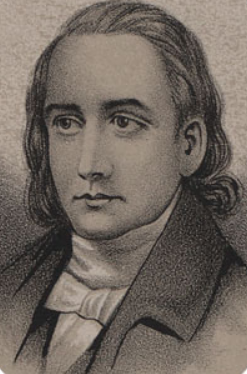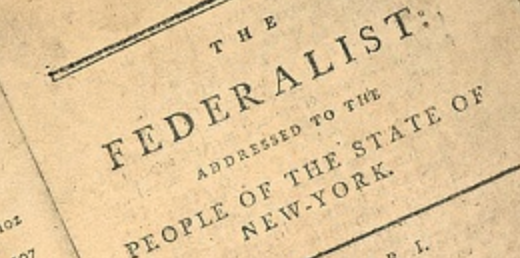Too Polite To Duel - John Penn's Courteous Rebellion
Yesterday we spoke of John Penn, colonial Governor of Pennsylvania.
Today, I thought it would be appropriate to discuss the more important John Penn...the one from North Carolina who signed the Declaration of Independence.
John Penn
John Penn’s father did not think education was important.
As a child, John did not receive more than three years worth of elementary school.
When his father died, Penn was 18 and needed work. He was fortunate that an uncle, Edmond Pendleton, was one of the most well known lawyers in Virginia.
Pendleton allowed John to study in his vast library. Within three years, Penn had passed the bar and began making a name for himself as one of the most promising young attorneys in the colony.
North Carolina
In 1774, Penn had been brought to trial for saying rude things about the King and Parliament. He was found guilty but a sympathetic Judge only fined him one penny.
This was still an unacceptable decision and in response John relocated to North Carolina.
Penn’s law practice really took off in his new home and within a year he was chosen as a Delegate to the Second Continental Congress.
Continental Congress
In Philadelphia, John Penn became the North Carolinian most eager to separate from Great Britain.
As such, he voted for and then signed the Declaration of Independence.
Penn spent five years in the Continental Congress during which time he also signed the Articles of Confederation.
Too Polite To Duel
During his time in Congress, President Henry Laurens challenged Penn to a duel.
The reasons for this challenge are unknown, though the two men’s main political differences come from Penn’s lower-class background versus Laurens’ wealthy status.
As it turns out, the day of the duel found the two gentlemen eating breakfast together.
Afterward, they walked with each other toward the agreed upon grounds on which they would take aim.
There had recently been heavy rains and Philadelphia's streets were soaked in mud. At a particularly precarious spot in the road, Penn offered Laurens his arm to help him cross.
This gesture seems to have cooled tensions, as the engagement was called off immediately (though the two would continue as rivals on the floor of Congress).
Forgotten
Perhaps the greatest reason John Penn if much forgotten today is that he left politics in 1780 when he returned to North Carolina.
His health had always been weak and especially deteriorated during his travels to and from Philadelphia.
In 1788, at just 46-years-old, Penn passed away at his home.
Here are some other Declaration signers:
Future Signers in Edinburgh - The Persuasive Richard Stockton
George Taylor - The Indentured Servant Who Signed The Declaration
George Walton’s Signature Doesn’t Get Him Hung
John Penn does not have a full biography, but he and all the other Declaration signers can be found in many compilation books.
‘Signing Their Lives Away’ is my favorite of these books. It gives brief, fun accounts of all the signers of America’s founding document.
Pick up a copy through the Amazon affiliate link below (you’ll support this site, but don’t worry, Amazon pays me while your price stays the same).
Want to get fun American Revolution articles straight to your inbox every morning?
Subscribe to my email list here.
You can also support this site on Patreon by clicking here.
Thanks for your support!






